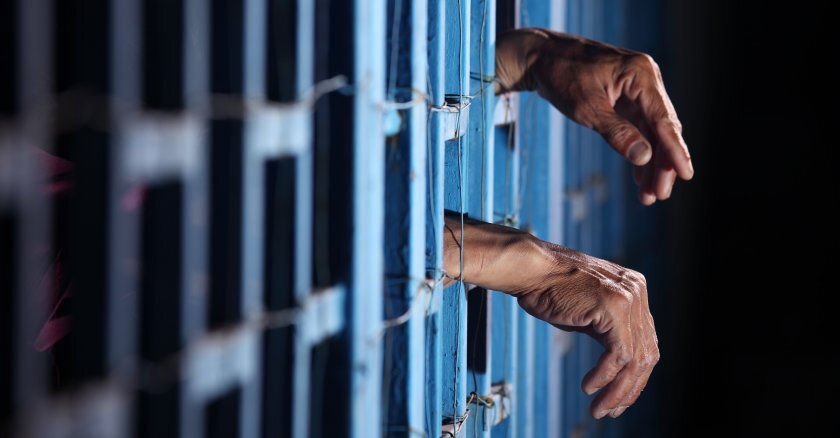Holding a defendant in jail before trial is necessary in certain cases to protect the public, but it should not be the norm. In the majority opinion of the 1987 Salernodecision, Chief Justice William Rehnquist wrote: “In our society liberty is the norm, and detention prior to trial or without trial is the carefully limited exception.”
Despite this clear guidance, recent state legislative proposals would establish what’s called a “rebuttable presumption” in favor of pretrial detention in certain cases. That means that defendants would be required to produce overwhelming evidence to counteract the presumption that they should remain in jail until their trial. Rebuttable presumptions of pretrial detention would stack the deck against freedom, which our founders believed was the default human condition that government was formed to protect.
Pretrial detention inevitably imposes significant penalties on defendants well before their guilt — or innocence — has been determined. On average, more than nine months pass between an arrest and a felony trial, and deaths and dangerous conditions in local jails continue to mount. Additionally, the longer a defendant is detained, the higher the likelihood that the individual will plead guilty to a crime to avoid further detention.
Yet lawmakers in some states are seeking to make pretrial detention the norm in many cases.A Virginia proposal, for example, would create a laundry list of offenses for which there would be rebuttable presumption that “no condition or combination of conditions will reasonably assure the appearance of the person or the safety of the public.” Among the dozens of offenses covered are not just violent crimes but also certain drug offenses if the person has a previous conviction.
In New Mexico, two lawmakers have similarly proposed establishing rebuttable presumptions in favor of pretrial detention. Compared with its Virginia counterpart, this proposal enumerates a shorter list of offenses that is limited to violent and sex crimes. But it still overreaches by applying to any offense that results in “great bodily harm,” which could cover cases where someone is injured through negligent rather than intentional conduct. It also conflicts with the state’s constitution as interpreted by the New Mexico Supreme Court, and an official fiscal analysis shows that it would result in nearly 2,000 more pretrial detainees at a cost of more than $22 million to county taxpayers.
Even if these proposals focused exclusively on the most heinous crimes, they would be problematic. A person dropped in a jail cell and cut off from a phone, possessions, family and friends is in the worst possible position to prove that there is little risk of flight or re-arrest. Furthermore, our justice system often fails to provide defendants with capable counsel upon arrest and does not consistently require prosecutors to turn over exculpatory evidence, so even defendants who are innocent face long odds in showing that they were wrongfully arrested.
Using rebuttable presumptions of detention is also an antiquated and imprecise way to protect public safety. Research shows that risk assessments of defendants are more predictive when they go beyond the current alleged offense and look at factors such as recent prior convictions for serious crimes and previous attempts to abscond. Interviews of the defendant by a pretrial services officer can also provide the judge with valuable information, such as whether the defendant expresses anti-social attitudes or threats of future violence, and whether, if released, the defendant would be in a stable environment.
Maintaining the presumption of innocence does not entail a kamikaze mission when it comes to public safety. No one should be kept in jail simply because they are poor and cannot afford bail. Detention without bail, regardless of wealth, should be a discretionary option for judges in appropriate cases, after a hearing in which the defendant is represented by capable counsel with access to all of the prosecution’s evidence. In every case, however, the burden should rest on the state to prove a compelling need for pretrial detention, justified by clear and convincing evidence that the defendant is guilty and that no conditions of release could protect the community. Expedited appeals to higher courts should also be available.
Some of the jail costs that these rebuttable presumptions would incur could instead be invested in providing pretrial services and supervision. Such programs, when done well, can reduce failures to appear in court. In one supervised-release program that involves both regular reporting and a social worker who connects the defendant with needed resources such as treatment, employment and housing, 87 percent of defendants were not re-arrested on a new felony charge while enrolled.
Making sure individual liberty is the norm for individuals before they have been convicted of a crime challenges us to live up to our own highest ideals. We can protect public safety while maintaining the presumption of innocence that is a traditional bulwark against government overreach.
Governing's opinion columns reflect the views of their authors and not necessarily those of Governing's editors or management.
Related Content















